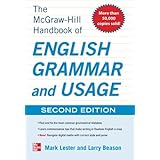torticollis (Also torticollises) : Related Words Words similar in meaning to torticollis
- wryneck«
- torticollis«
- congenital torticollis«
- twist«
- neck«
- abnormality«
- tortipelvis«
- muscle«
- abnormalcy«
- microcurrent therapy«
- sternocleidomastoid muscle«
- medical«
- head tilt«
- jerk«
- ultrasound diathermy«
- contract«
- head«
- condition«
- physical therapy«
- infection«
- pillow«
- lateral bend«
- colour histogram«
- surgery«
- trauma«
- surgical release«
- affected muscle«
- disease«
- nerve supply«
- neoplasia«
- neck muscle«
- inflammation«
- cervical spine«
- neck pain«
- ultrasonography«
- muscle spasm«
- prone position«
- muscle tissue«
- rehabilitation program«
- rotation«
- evaluation«
- month«
- exercise«
- domestic animal«
- clinical practice«
- relapse«
- motion«
- upper cervical joint«
- transient contraction«
- tot collar«
- tight sternocleidomastoid muscle«
- term torticollis«
- sternocleidomastoid tumor«
- spasmus nutans«
- soft neck collar«
- short e. cuniculi«
- rough categorization discerns«
- rotatory torticollis«
- rotational torticollis«
- regular stretching exercise«
- position infant«
- peripher vestibular system«
- passive cervical rotation«
- passive cervical range«
- painful neck muscle«
- outpatient infant physiotherapy«
- obvious bony abnormality«
- noncongenital muscular torticollis«
- neuroleptic class«
- neck backward«
- n. vestibulocochlearis«
- muscular soft tissue«
- muscular fibrosis«
- minute electrical signal«
- micocurrent therapy«
- main innervation«
- longitudal axis«
- lateral neck flexion«
- iv cranial nerve«
- intrauterine malposition«
- intermittent torticollis«
- intense physiotherapy program«
- inflammatory laxity«
- infant lie«
- idiopathic cervical dystonia«
- geriatric vestibular syndrome«
- fibrotic sternocleidomastoid muscle«
- entire sternocleidomastoid muscle«
- encouraging active movement«
- dystonic condition«
- dynamic tilt«
- cranial nerve iv palsy«
- congenital spine abnormality«
- congenital muscular torticollis«
- asymmetrical head«
- anterocollis«
- active rotation exercise«
- acquired torticollis«
- child«
- viiith cranial nerve«
- thickened«
- retrocollis«
- laterocollis«
- inner ear infection«
- fibrodysplasia ossificans«
- early initiation«
- tumor«
- wry neck«
- transverse scapular artery«
- sandifer syndrome«
- neck pillow«
- muscular balance«
- main blood supply«
- excessive contraction«
- cranial nerve xi«
- cervical gland«
- atlantoaxial joint«
- posture due«
- decrease inflammation«
- cerebellar tumor«
- analogon«
- treatment«
- posterior pharynx«
- muscle thickness«
- encephalitozoon cuniculi«
- age«
- physical therapy exercise«
- anatomical distortion«
- impaired blood supply«
- forward flexion«
- repetitive microtrauma«
- occasional formation«
- lateral bending«
- decrease pain«
- null position«
- neurologic examination«
- fourth cranial nerve«
- home therapy«
- unusual posture«
- cervical dystonia«
- adenitis«
- remarkable outcome«
- normal frequency«
- developmental dysplasia«
- vestibular organ«
- hard mass«
- veterinary literature«
- loxia«
- transverse cervical artery«
- infant«
- superior thyroid artery«
- palpable mass«
- grisel«
- botulinum toxin injection«
- surgical debridement«
- parent«
- symptom«
- frequency sound wave«
- sternocleidomastoid«
- other alteration«
- occipital artery«
- lateral position«
- skull base«
- adenoid«
- accessory nerve«
- collum«
- trapezius muscle«
- stiff neck«
- recovery«
- subluxation«
- mastoid process«
- phenothiazine«
- clubfoot«
- domestic pet«
- antiemetic«
- hyperextension«
- calcium concentration«
- neck position«
- additional treatment«
- conservative treatment«
- time child«
- complete agreement«
- other treatment«
- pott«
- botulinum toxin«
- fop«
- guardian«
- contracture«
- tonsillitis«
- car seat«
- supine«
- korean study«
- temporal bone«
- dog«
- myasthenia gravis«
- drug«
- ear infection«
- mass«
- other animals«
- effective manner«
- radiograph«
- diazepam«
- antipsychotic«
- neutral position«
- body tissue«
- brain stem«
- other symptom«
- stroller«
- clavicle«
- flexion«
- cervical vertebra«
- hypothyroidism«
- diagnostic tool«
- tightness«
- muscle contraction«
- damage«
- surgical removal«
- week«
- possibility«
- latin word«
- optometrist«
- physical therapist«
- protein synthesis«
- viable option«
- sternum«
- differential diagnosis«
- scarring«
- sudden change«
- abscess«
- analgesic«
- combination«
- traumatic brain injury«
- prolonged period«
- shortening«
- rheumatism«
- chance«
- physical examination«
- crib«
- ophthalmologist«
- newborn«
- blood flow«
- tenderness«
- tonic«
- range«
- ligament«
- prognosis«
- insert«
- mri«
- womb«
- diagnosis«
- posture«
- antibiotic«
- toxicity«
- types«
- recent research«
- probe«
- atp«
- hallmark«
- draught«
- blanket«
- pathology«
- chin«
- syndrome«
- symmetry«
- manipulation«
- opposite direction«
- study«
- cold«
- human body«
- type«
- nerve«
- cause«
- incidence«
- thickness«
- toe«
- multitude«
- therapy«
- form«
- rabbit«
- spine«
- tuberculosis«
- swing«
- opposite«
- tissue«
- anatomy«
- synonym«
- disorder«
- toy«
- ectrodactyly«
- phimosis«
- cryptorchidism«
- hypospadias«
- gynecomastia«
- hepatomegaly«
- macrocephaly«
- hydatid mole«
- infantilism«
- varix«
- aneuploidy«
- microcephaly«
- atresia«
- strabismus«
- progeria«
- foetal distress«
- hydrocephalus«
- dysplasia«
- pneumothorax«
- obliquity«
- infantile fixation«
- mental abnormality«
- squint«
- deviated septum«
- aberration«
- deviance«
- transposition«
- regression«
- molar pregnancy«
- fetal distress«
- spinal curvature«
- irritation«
- untypicality«
- subnormality«
- sequela«
- retroversion«
- retroflexion«
- retroflection«
- palmature«
- pachycheilia«
- nanophthalmos«
- nanocephaly«
- microcephalus«
- microbrachia«
- megalohepatia«
- megalocephaly«
- megacephaly«
- macrencephaly«
- lagophthalmos«
- hypervitaminosis«
- hydrocephaly«
- hydramnios«
- hydatidiform mole«
- heterotaxy«
- erethism«
- dextrocardia«
- cyclopia«
- cryptorchism«
- cryptorchidy«
- brachydactyly«
- brachydactylia«
- atypicality«
- asynclitism«
- anorchism«
- anorchidism«
- anorchia«
- anomalousness«
- amastia«
- acromphalus«
- acromikria«
- acromicria«
- acorea«
- acephaly«
- acephalism«
- acephalia«
- acardia«
- abrachia«
- aberrancy«
- aberrance«
- anomaly«
- fixation«
- inversion«
- arrested development«
- esotropia«
- lordosis«
- kyphosis«
- divergent strabismus«
- convergent strabismus«
- hyperplasia«
- hypertrophy«
- subnormal«
- aplasia«
- hypoplasia«
- fibrous dysplasia of bone«
- scoliosis«
- congenital disorder«
- congenital defect«
- congenital anomaly«
- congenital abnormality«
- chrosomal abnormality«
- deviated nasal septum«
- hunchback«
- irregularity«
- chromosomal aberration«
- aberrant«
- walleye«
- deviant«
- chromosomal anomaly«
- deviate«
- humpback«
- deflection«
- organic brain syndrome«
- chromosonal disorder«
- dowager's hump«
- varicosity«
- monorchism«
- monorchidism«
- hollow-back«
- exotropia«
- cross-eye«
- ateliosis«
- ateleiosis«
- anomalist«
- anaplasia«
- irregular«
- birth defect«
- warp«
- crossed eye«



